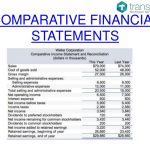Content
- Basis for Qualified Opinion
- Has the SEC Ever Been Willing to Accept Qualified Audit Opinions for a GAAP Departure?
- Facilitative reforms, democratic accountability, social accounting and learning representative initiatives
- Implementation considerations for new auditor reporting standards
- levels of audit opinions
- Importance of Unqualified Opinion in Auditor’s Report

When there is a scope restriction that results in the failure to verify material, but not pervasive accounts, a qualified opinion may be issued. This is more likely when the scope limitation is for conditions beyond the client’s control than for restrictions by the client. The standard unmodified opinion audit report for a non-public entity under AICPA auditing standards and the standard unqualified report for a public company under PCAOB auditing standards are very similar in substance. The introductory paragraphs are similar, although the public company report includes the responsibilities of management and the auditor. In contrast, the report for the non-public entity in Figure 3-1 has separate paragraphs for management’s and the auditor’s responsibility. These paragraphs provide additional information on the nature of these responsibilities.

In an audit engagement, the auditor gives his opinion on the financial information disclosed by your business. The auditor’s report is an integral element of your business’s audited financial statement. At the culmination of the audit engagement, the auditor expresses his opinion in the auditor’s report, which can be qualified or unqualified. Resultantly, a qualified opinion affirms the fairness of the accounting records with some exceptions.
Basis for Qualified Opinion
They also check for the internal control system in the company to obtain reasonable assurance.Audit report and Auditor’s opinion plays a key role in the annual report and it influences the business in a bigger way. There are lots of advantages that come from an unqualified audit opinion and every company expects its financials to be cleared by the auditors and to get an unqualified opinion. When disclaiming an opinion because of a scope limitation, the auditor should state in a separate paragraph or paragraphs all of the substantive reasons for the disclaimer. He or she should state that the scope of the audit was not sufficient to warrant the expression of an opinion. The auditor should not identify the procedures that were performed nor include the paragraph describing the characteristics of an audit (that is, the scope paragraph of the auditor’s standard report); to do so may tend to overshadow the disclaimer. In addition, the auditor should also disclose any other reservations he or she has regarding fair presentation in conformity with generally accepted accounting principles.
When can an auditor issue a qualified except for opinion?
Qualified Opinions
The auditor believes, on the basis of his or her audit, that the financial statements contain a departure from generally accepted accounting principles, the effect of which is material, and he or she has concluded not to express an adverse opinion (paragraphs .
Also, when there is an absence of notes, explaining the occurrence of certain figures in the statement, it can create doubt or uncertainty for the auditor, thereby causing a qualified opinion. Such a report is free from any material misstatements and presents that the financial statements are prepared as per the accounting principles. It indicates that the auditor is satisfied with the points required to be stated in the report and states them in a positive manner, but without adding any reservations.
Has the SEC Ever Been Willing to Accept Qualified Audit Opinions for a GAAP Departure?
A qualified opinion is an integral part of an auditors report after an adit process had been done in a business. The final section of the auditors report is where qualified opinions can be found, this is the section whether the auditor gives reasons for the opinion they form on the financial statement of the business, among others. The opinion that an auditor gives about a financial statement includes opinions about audit and internal controls of the business. A clean report means the auditors found no issues with the company’s financial reports, and the company is in full compliance with GAAP guidelines.
When the auditor discovers more than one condition that requires a departure from or a modification of a standard opinion audit report, the report should be modified for each condition. An exception is when one condition neutralizes the other condition. An example would be when the auditor is not independent and there is also a scope except for audit opinion limitation. In this situation the lack of independence overshadows the scope limitation. As part of this risk assessment, the auditor considers internal control over financial reporting in the design of the audit procedures. The end product of the auditor’s work is an audit report that is attached to the financial statements.
What does except for audit opinion mean?
Except for opinion. An auditor's opinion reflecting the fact that the auditor is unable to audit certain areas of the company's operations because of restrictions imposed by management or other conditions beyond the auditor's control.